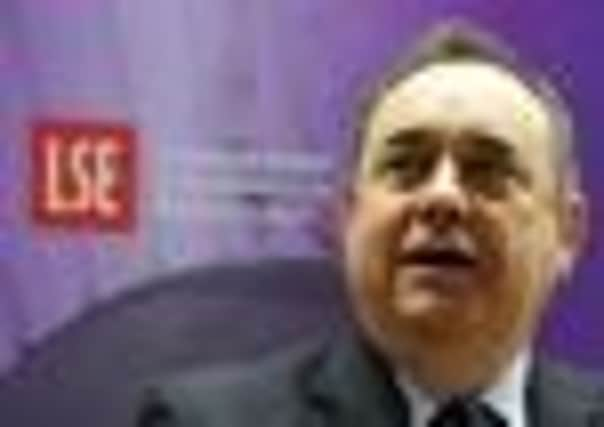Analysis: First Minister’s speech a big hit with economics’ big hitters


Alex Salmond’s Liverpool speech on Monday night had been a little flat, although under questioning he provoked easy laughs with his cheeky chappy routine. At the LSE, the First Minister was on more natural turf.
He spoke the language of a City economist, and the capacity audience understood what he was talking about. The speech itself comprised familiar refrains that independence is key to Scotland’s future economic growth, giving “six of the best”, or in other words half a dozen practical examples of beneficial steps that could be taken “with control of fiscal policy within a sterling monetary union”. Perhaps surprisingly, his claim that £1 billion of invested oil revenue could grow 30-fold within a decade went unchallenged.
Advertisement
Hide AdAdvertisement
Hide AdNaturally, Salmond drew upon his back story to emphasis his economic credentials, recalling his first job as an assistant agricultural economist at the Scottish Office. “You tend to remember your first salary,” he joked, “it’s like your first car or telephone number”. Indeed, the First Minister revealed that he had been paid the princely sum of £3,114 a year.
Sensing the audience was on side, Salmond interspersed the heavy economic stuff with pithy phrases (“I have a wee theory”) and jokes (“I get daily letters from Donald Trump”). London audiences, of course, have not heard the First Minister’s jokes before, so the line about Scotland having more pandas than Tory MPs got a big laugh.
LSE academic Professor Simon Hix even admitted to being “generally very sympathetic” to what he had heard. All in all the evening was a hit for the First Minister.